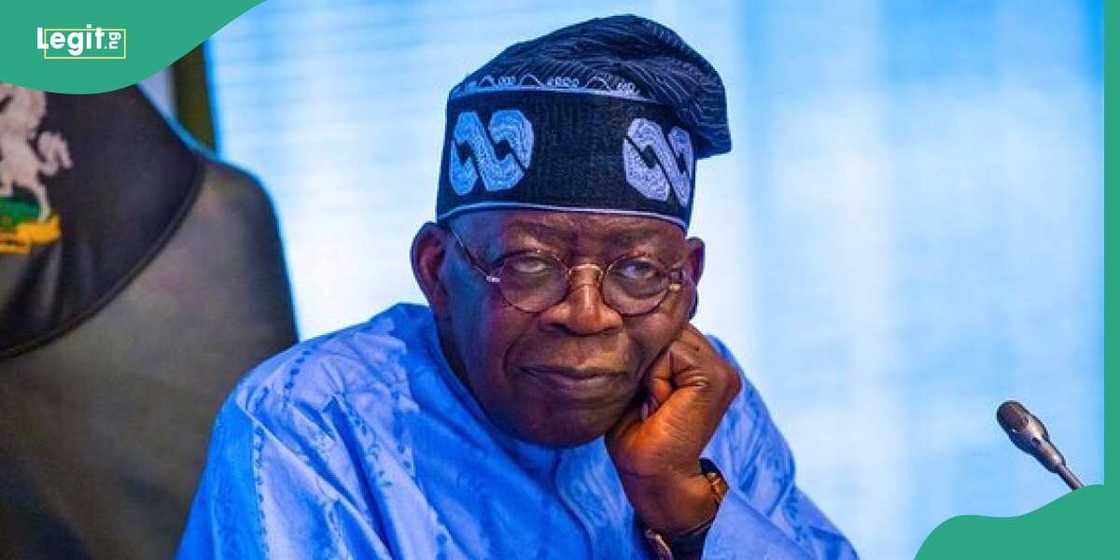- The federal government spent about $3.5 billion servicing external debt in the first nine months of 2024
- The information from the Central Bank of Nigeria (CBN) on international payments shows that debt servicing increased by 39.77%
- The CBN data on international payments shows that the highest monthly debt service payment this year happened in May
Legit.ng’s Pascal Oparada has reported on tech, energy, stocks, investment and the economy for over a decade.
The Nigerian government spent $3.58 billion servicing foreign debt in the first three quarters of 2024, representing a 39.77% increase from the $2.56 paid during the same period in 2023.
Central Bank of Nigeria (CBN) data shows the amount spent on international payments within that period.

Source: Facebook
June sees the highest rise in debt servicing
The rise in external debt service payments indicates the pressure on Nigeria’s financial balance amid economic challenges.
CBN data on international payments show that the highest monthly debt service payment this year was in May, amounting to $854.37 million.
Compared to the monthly expenditure in 2024, it was $641.70m in July 2023.
The difference in May’s figures between the two years shows the rising cost of debt obligations.
Breakdown of debt servicing in 2024
The information from the apex bank shows monumental monthly changes in debt servicing costs, with some months recording increases compared to the previous day.
In January, debt servicing spiked by 3898.89%, rising to $560.52 million from $112.35 million in January 2023.
In February, debt servicing declined slightly by 1.84%, with payments declining from $288.54 million in 2023 to $283.22 million in 2024.
March saw a 31.04% decline in payments, dropping to $276.17 million from $400.47 in the same period in 2023.
April witnessed a spike of 131.77%, with $215.20 million paid in 2024 compared to $92.85 in 2023.
The highest debt servicing payment was in May this year at $854.37 million in May 2023.
June, however, saw a 6.51% drop, with $50.82 million used in debt servicing this year from $54.36 in 2023.
This year, July witnessed a 15.48% decline, with payments dipping to $542.50 million from $641.70 million in July last year.
In August, the Nigerian government serviced external debt with $279.95 million, representing a 9.69% drop from $309.96 million in 2023.
September saw a 17.49% increase in debt servicing amounts, to $515.81 from $439.06 million in the same month in 2024.
Nigeria’s external debt rises
Punch reports that the data raises worries about Nigeria’s growing debt burden, with rising global interest and FX rate fluctuations contributing to higher costs.
A recent report by Legit.ng shows that Nigeria’s external debt rose to over $42 billion.
Data from the Debt Management Office (DMO) shows that the 36 states, including the Federal Capital Territory, account for 11% of the loans, at $4.89 billion, and the federal government’s debt is $38 billion.
The country’s multilateral debt is $17.13 billion, while bilateral debt, including those from China EXIM Bank, Jika, KWF, IsDB, and AFD, is $5.49 billion.
Top 10 Nigerian states with highest domestic debt in 2024
Legit.ng earlier reported that Nigeria’s 36 states’ including the Federal Capital Territory (FCT), increased their domestic debts by N198 billion in three months.
The information is from the data released by the Debt Management Office on the sub-national debt for the second quarter of 2024.
According to the DMO data, the states’ total domestic debt and the FCT increased by five per cent from N4.068 trillion in March this year to N4.267 trillion in June 2024.
PAY ATTENTION: Сheck out news that is picked exactly for YOU ➡️ find the “Recommended for you” block on the home page and enjoy!
Source: Legit.ng
















 English (US) ·
English (US) ·